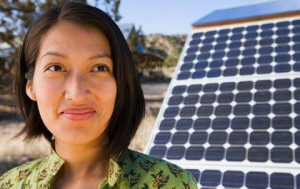I try to be a responsible steward of the earth. I recycle, compost, and eat a plant-based diet. I fall short when it comes to my love for long, hot showers. I feel guilty that my showers damage my skin, my utility bills, and the environment — but not guilty enough to stop taking them.
One day, as the suds swirled down the drain, I had an idea. Why not invest in solar power? According to company sales director for NC Solar Now, Gregory Olenar, doing so could >>reduce my energy bills by 50%.
There’s a lot to take into consideration, though. Will I get a return on my solar-power investment? Is investing in solar power like buying an electric car, where the increased cost of the car counteracts the savings at the pump? And would the amount I spend on lotion to keep my skin hydrated because of longer, hotter showers counteract the amount we’d save?
Forgetting about my shower dilemma for a moment, I have some news to share: solar power is great not just for homeowners, but for our state. According to >>a report released last month by Duke University, it turns out that NC now has 150 utility scale solar facilities with almost 400 more planned. Aside from providing income to farmers who lease their land and tax revenue for different towns, these solar facilities and the companies involved, the “value chain” of investors, as they are called, equal over 4,000 jobs and a $2 billion investment.
Jobs! Who doesn’t love the promise of that word and what having one can do? >>Women in Solar Energy (WISE) says that “the solar industry[…] is creating jobs at a rate nearly 20 times faster than employment growth in the overall economy.” The industry needs women though. The organization’s fact page reports “At 21.6% in 2014, up from 18.7% the previous year, women are still largely underrepresented and their role in all aspects of the value chain cannot be underestimated. […] There are plenty of jobs and opportunities for women to capture a large portion of this booming industry.”
My husband and I couldn’t claim any of this year’s home renovations on our taxes, because they didn’t make our house more energy efficient. Installing solar panels on our roof could earn us up to a $500 tax credit for energy efficiency and there’s the possibility of even more savings, according to >>Yes! Solar Solutions’ website. Add this to the savings Olenar predicts and it’s an intriguing option for us and other homeowners. What could you do with an energy bill that’s been slashed?
I haven’t broached this with my husband yet (another project might make him jump off the roof before any panels get installed), but I’ve begun requesting quotes. If we help the environment and save money, it’s a double win for my family — and it might be for you, too.
>> Jennifer Brick is a writer and teacher in Durham, North Carolina. She earned her Masters of Fine Arts in Creative Nonfiction from Goucher College. Follow her on Twitter @jenbrickwrites.
Jennifer Brick is a writer and teacher in Durham, North Carolina. She earned her Masters of Fine Arts in Creative Nonfiction from Goucher College. Follow her on Twitter @jenbrickwrites.

There are no comments
Add yours